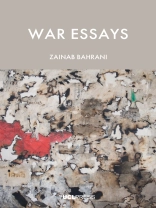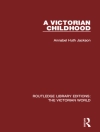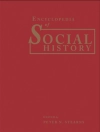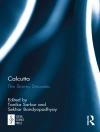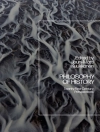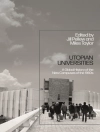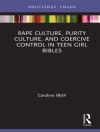More than 20 years have passed since Iraq was invaded in an illegal war, justified on the basis of falsified evidence. Operation Iraqi Freedom led to untold human suffering and massive destruction, the ruinous consequences of which persist to this very day. The war and occupation also had a devastating impact on the history and heritage of Iraq, a land ironically seen as the cradle of civilisation. The scale of theft and destruction of heritage sent shockwaves around the world that had radical consequences for the trade in antiquities and museum practices across the globe, and contributed to a paradigm shift in the discipline of archaeology.
In War Essays Zainab Bahrani charts the devastation, cultural cleansing and targeted erasure of Iraq’s past, and argues that the topics of archaeology, history and memory must be analysed within the larger geopolitical issues of the contemporary Middle East. The essays present a counter-narrative of events that historicize the position of the historian and illustrate the enduring colonial practices of archaeology. Set within a narrative that reflects at once upon the violence of war and the processes of writing, an archaeologist’s personal journey unfolds. War Essays intertwines the autobiographical with the historical and analytical aspects of scholarship, weaving an eye-witness account of war with theoretical discussions around writing, the relationship of monuments, historical landscapes and memory, and how one’s sense of place in the world is disrupted by war.
Praise for War Essays
‘In this volume of powerful and important essays Zainab Bahrani bears witness to an ongoing and brutal chapter in Iraq’s history, and the constellations of imperial narratives and compounded injuries that actively participated in the 2003 Iraq War and its aftermath, continuing into the present.’
Kim Benzel, Metropolitan Museum of Art
‘Bahrani’s book reveals the long-lasting impact of the US and British invasion of Iraq, particularly its cultural destruction and cleansing. Her fieldwork and writing offer an erudite view, filling a critical gap in the study of Iraq’s contemporary history. It is a must-read for students and scholars of Iraqi studies.’ Tareq Ismael, University of Calgary
‘Assembling reflections on the 2003 Iraq War and its aftermath, over a period of two decades, Zainab Bahrani deploys her deep knowledge of ancient Mesopotamia to shed light on the nature of modern warfare and its multi-sited confrontations with the material remains of the past. From university campuses to UNESCO, and from local sites of destruction to the global trade in illicit antiquities, this book offers a timely intervention delivered from a unique vantage point, in the eye of the storm.’
David Wengrow, UCL
Table of Content
List of figures
Acknowledgements
Cover illustration: artist’s note
Introduction: Twenty years after Operation Iraqi Freedom
Part I: War in Iraq
Preface
1 Looting and conquest
2 The scholar as activist
3 The Iraq War
4 In the fray: British and Swiss get tough about smuggling
5 Days of plunder
6 Iraq’s cultural heritage: monuments, history and loss
7 The destruction of cultural heritage in Iraq
Plate section 1: Figures 1-17
Part II: Military occupation and archaeological discourse
Preface
8 Babylon: a case study in the military occupation of an archaeological site
9 The battle for Babylon (2006)
10 The battle for Babylon (2008)
11 Desecrating history
12 October questionnaire
13 Archaeology and the strategies of war
Part III: Aftermath: erasing/writing
Preface
14 Archaeology, global cultural heritage and Iraq
15 Tabula rasa
16 Amnesia in Mesopotamia
Plate section 2: Figures 18-34
Part IV: ISIS/Daesh
Preface
17 The absent past: heritage destruction and historical erasure today
18 Destruction and preservation as aspects of just war
19 Blood antiquities and the global art market
20 Decolonising the museum
21 Technologies of power in archaeology
22 Historical destruction in a forgotten war
23 Mosul and Niniveh
24 Conclusion: Warfare, creative destruction, and the politics of preservation
Index
About the author
Zainab Bahrani is the Edith Porada Professor and Chair of the Department of Art History and Archaeology at Columbia University in New York, and the author of several books, including Rituals of War (2008) which won the American Historical Association Breasted Prize and The Infinite Image (2014) which won the Lionel Trilling Prize.
